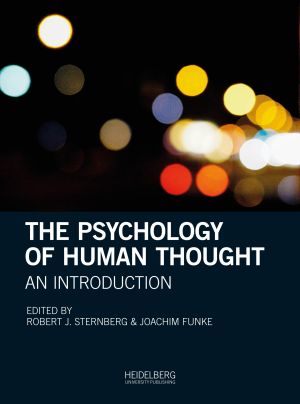Zitationsvorschlag
Lubart, Todd und Thornhill-Miller, Branden: Creativity: An Overview of the 7C’s of Creative Thought, in Sternberg, Robert J. und Funke, Joachim (Hrsg.): The Psychology of Human Thought: An Introduction, Heidelberg: Heidelberg University Publishing, 2019, S. 277–305. https://doi.org/10.17885/heiup.470.c6678
Lizenz (Kapitel)

Dieses Werk steht unter der Lizenz Creative Commons Namensnennung - Weitergabe unter gleichen Bedingungen 4.0 International.
Identifier (Buch)
ISBN 978-3-947732-33-3 (PDF)
ISBN 978-3-947732-34-0 (Softcover)
ISBN 978-3-947732-35-7 (Hardcover)
Veröffentlicht
31.07.2019
Creativity: An Overview of the 7C’s of Creative Thought
- Creativity is a multifaceted phenomenon that can be understood by examining 7 aspects, called the 7 C’s: Creators (person-centered characteristics), Creating (the creative process), Collaborations (co-creating), Contexts (environmental conditions), Creations (the nature of creative work), Consumption (the adoption of creative products) and Curricula (developing creativity).
- Creative people have a set of cognitive capacities, personality traits, affective and motivational characteristics that favor their engagement in original thinking.
- Person-centered factors, environmental conditions and task-centered factors need to be jointly considered to describe creative potential and achievement.
- The creative process involves multiple sub-processes, which can be described as divergent-exploratory and convergent-integrative phases.
- Creative potential and achievement can be measured with production tasks, and other assessment tools in diverse domains of expression.
- Creativity can be collaborative and collective as expressed in team, group and societal forms of creativity.
- Creativity is influenced by the physical and sociocultural context, which may boost or inhibit it, and direct creativity to certain expressive outlets.
- Creativity is a topic that concerns both the production and the public who consume the creations, pointing to a co-constructive link between creators, consumers, and cultures.
- Creativity can be developed through education. The school curriculum, or specific training activities and creativity techniques have been shown to boost original thinking in children and adults.






